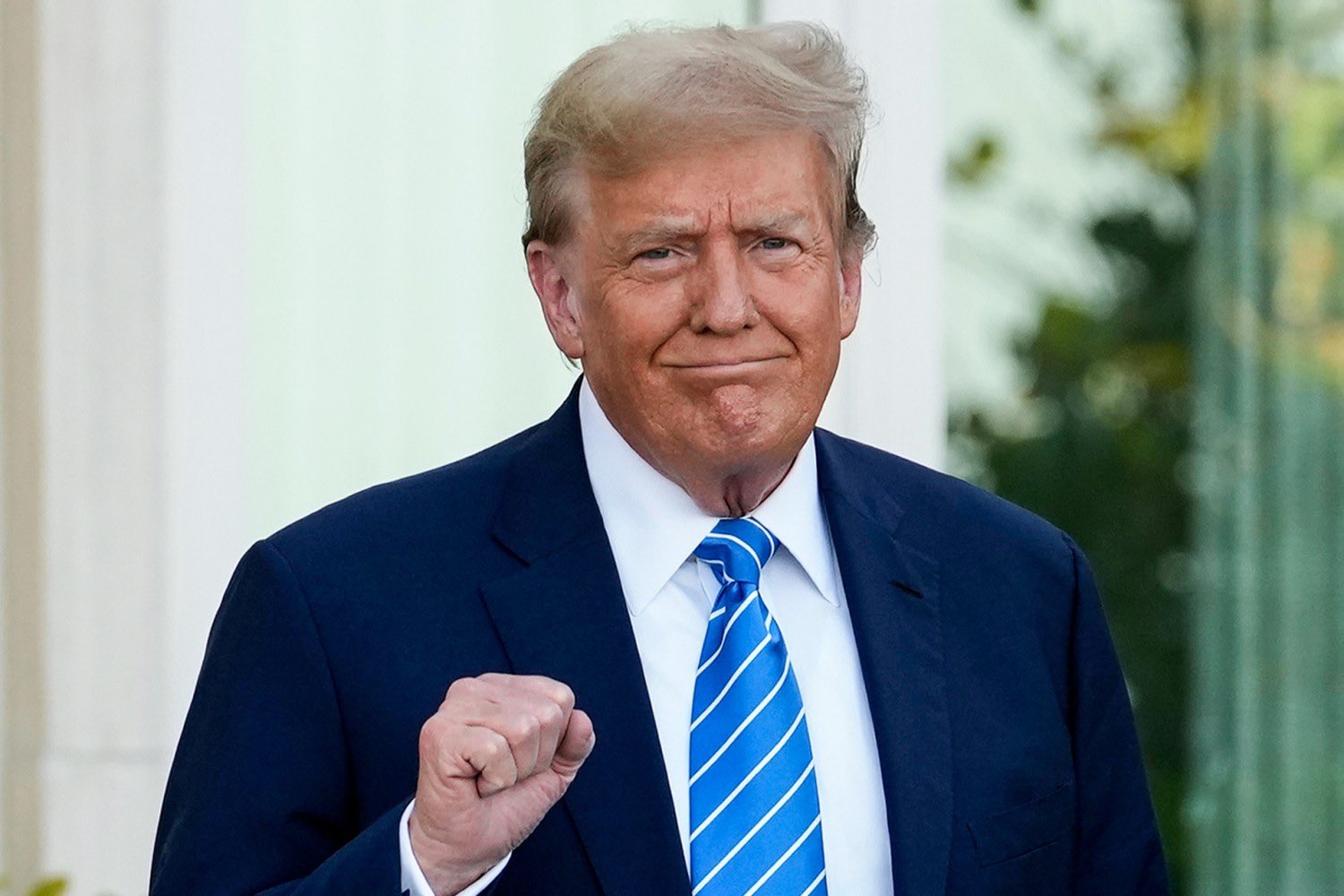In a significant revelation, the U.S. Justice Department has stated that former President Donald Trump would have likely been convicted if he had not been elected to the presidency. This statement comes from the highly anticipated special counsel report, which provides a detailed analysis of the investigations into Trump’s conduct during and after his tenure in office.
The Justice Department’s report, released recently, underscores the gravity of the legal challenges faced by Trump, who is at the center of multiple investigations regarding his involvement in attempts to overturn the results of the 2020 presidential election. The special counsel’s findings offer a sobering assessment of Trump’s actions and provide insights into why legal authorities believe he escaped conviction during his time as president.
The Context of the Investigations
Th
The special counsel’s investigation, led by Jack Smith, delved into whether Trump’s actions violated federal law. The report notes that had Trump not been in office at the time of the events, it is likely he would have faced prosecution for his role in inciting the Capitol attack and attempting to subvert the election results.
The Legal Reasoning Behind the Statement
The Justice Department’s assertion that Trump would have been convicted if he wasn’t elected stems from legal protections afforded to sitting presidents. While in office, Trump was shielded from legal actions that could have directly led to charges and potential conviction, especially concerning actions he took while carrying out the duties of the presidency.
The report highlights that while the Justice Department considered a number of charges against Trump, including obstruction of justice and conspiracy to defraud the U.S. government, a key factor in not pursuing criminal charges was the constitutional question regarding the actions of a sitting president. The department ultimately decided not to bring charges, citing the legal complexities and the fact that Trump was acting within the scope of his presidential duties.
However, the report also outlines that Trump’s legal immunity expired after he left office. The conclusion that he would have been convicted underscores the severity of his actions, which, according to the special counsel, warranted criminal charges had they occurred outside the presidential context.
Implications for Trump’s Future Legal Battles
This report’s findings have significant implications for Trump’s ongoing legal challenges. While the special counsel report does not make a definitive statement about whether Trump will face charges, it underscores the vulnerability he faces in future legal proceedings. With the expiration of his presidential immunity, Trump now faces the potential for prosecution related to his actions in office.
Trump has already faced a series of investigations and lawsuits since leaving office, with several ongoing cases focusing on issues such as the mishandling of classified documents and alleged financial crimes. The special counsel report provides more fuel for these cases, potentially paving the way for further charges.
The findings also put renewed attention on the political ramifications for Trump, especially as he continues to be a prominent figure within the Republican Party. While his supporters view him as a champion of conservative causes, others are increasingly concerned about the legal consequences he faces as these investigations unfold.
Public Reaction and Political Impact
The Justice Department’s statement is likely to have broad political implications, not just for Trump, but for the nation’s broader political climate. Many Trump critics view the report as a vindication of their long-held belief that his actions were criminal. Democratic leaders and legal experts have emphasized that the report reinforces the need for accountability, especially considering the severity of the charges against the former president.
On the other hand, Trump’s supporters argue that the report is politically motivated and that the legal challenges against him are part of an effort to undermine his political career. Trump himself has dismissed the investigations as “witch hunts,” and he has continued to deny any wrongdoing, claiming that the charges against him are politically charged and baseless.
This tension is expected to grow as Trump’s legal battles unfold, especially in the lead-up to the 2024 presidential election, where he is once again seeking the Republican nomination. If he is able to secure the nomination despite his legal troubles, it could set the stage for a highly contentious election season.
The Future of U.S. Politics and Legal Accountability
As the nation looks ahead to the next presidential election, the question of legal accountability for former presidents will be a major point of debate. The special counsel report calls into question whether Trump’s actions while in office were above the law and whether the Justice Department should have pursued charges during his presidency. The report also sets a precedent for future administrations, illustrating the complexities of holding sitting presidents accountable for their actions while in office.
In the broader scope, the question of legal accountability for former presidents could have lasting impacts on the United States’ political and legal systems. If Trump does face charges in the future, it could change the way presidents and former presidents are treated in legal proceedings and could have long-term consequences for political trust and governance.
Conclusion: What’s Next for Trump?
The release of the special counsel report marks a pivotal moment in the ongoing investigations into Donald Trump’s conduct. While the statement that he would have been convicted if he hadn’t been elected adds weight to the allegations against him, it is clear that his legal battles are far from over. With Trump now a private citizen, his legal exposure is far greater, and it remains to be seen how these investigations will ultimately unfold.
As Trump’s political future hangs in the balance, so too does the question of how the U.S. legal system will handle the actions of its most recent former president. The report sets the stage for what could become one of the most high-stakes legal and political dramas in American history, with significant implications for both Trump and the broader U.S. political landscape.





